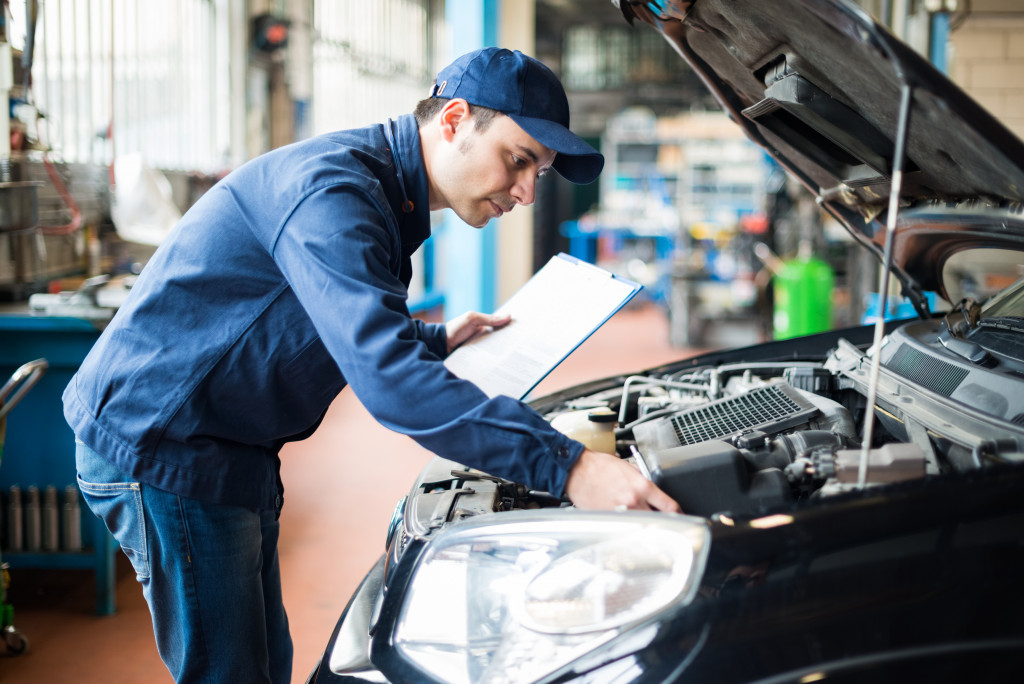
- Regularly maintain business vehicles to save money and keep employees safe
- Benefits of vehicle maintenance include safety, security, better environmental impact, and cost savings in the future
- Steps to maintain a vehicle include checking oil levels, tire pressure, brakes, and spark plugs
- Don’t underestimate the importance of regularly servicing your vehicles, and enjoy the benefits of a well-maintained fleet.
For many businesses, having a fleet of well-maintained vehicles is essential to day-to-day operations. However, maintaining business vehicles can often be overlooked or put on the back burner until an issue or breakdown occurs. To keep your business running smoothly and efficiently, it’s important to understand the basics of vehicle maintenance and why it’s so important for your business.
Why Vehicle Maintenance is Important for Businesses
As a business owner, it’s important to consider the importance of vehicle maintenance. Taking the time to maintain your vehicles helps you save money in the long run and keeps you and your employees safe. When it comes to vehicle maintenance, there are several key benefits that businesses should be aware of.
Safety and Security
One of the most important benefits of vehicle maintenance is safety and security. Regularly servicing your vehicles ensures that they are running smoothly and up to date with all the necessary repair work. This means that your employees will be able to drive safely, with fewer risks for accidents or breakdowns on the road. Additionally, regular vehicle maintenance can help you avoid costly repairs down the line, which can be especially beneficial if you have multiple vehicles in your fleet.
Environmental Impact

Another benefit of vehicle maintenance is the environmental impact. Regularly maintaining your vehicles helps reduce their emissions, which can help reduce air pollution and improve overall air quality in your local area. This is especially important for businesses that rely on large fleets of cars or trucks to do their work; by keeping these vehicles well-maintained and running efficiently, you can reduce your carbon footprint significantly. Additionally, properly maintained vehicles tend to last longer than neglected over time, which can also help save money in terms of replacement costs down the line.
How to Properly Maintain Your Business Vehicles
Keeping your cars in excellent condition is essential for the success of your business. Whether you’re using your vehicle for business or pleasure, proper maintenance is critical. Regularly maintaining your vehicle will help ensure it runs smoothly and efficiently, reducing the need for costly repairs. Here are four steps to remember when you want to maintain your vehicle correctly.
Check Your Oil
The oil in your engine helps to keep it running smoothly by lubricating its parts. You should check your oil levels every month or two and add more if needed. Additionally, you should replace the oil filter once a year or every 5,000 miles, whichever comes first. Keep in mind that this is a job for professionals. So, make sure you look for professional oil change services when it’s time to replace the oil. They can also inspect your vehicle and check for any other issues that need to be addressed.
Check Tire Pressure & Rotate Tires
Your tires are one of the most important components of your vehicle, so they must be well-maintained. Check the pressure of each tire regularly; most gas stations have an air pump that will allow you to do this quickly and easily for free. Additionally, you should rotate your tires at least once a year or every 5,000 miles (whichever comes first). This helps ensure that all four tires wear evenly over time and keeps them from wearing out too quickly.
Check Your Brakes

Your brakes are essential in keeping you safe while driving; therefore, checking them regularly is a must! It’s best practice to have them inspected at least once a year or whenever they start making strange sounds or feel different when used (e.g., grinding noise). If necessary, replace brake pads as soon as possible – waiting too long can cause permanent damage to other parts of the braking system.
Change Spark Plugs & Air Filters
The spark plugs are responsible for igniting fuel for it to combust; if these become worn out, then this could affect performance and even lead to engine failure! Replace spark plugs at least once a year (or according to manufacturer’s recommendations) and regularly change air filters, which help reduce dust particles entering the engine via the air intake system.
The Bottom Line
Maintaining your business vehicles is essential for keeping your company running smoothly and efficiently throughout the year. Don’t underestimate the importance of regularly servicing your vehicles; it can help you save money in the long run and keep your employees safe on the road. Take the time to check your oil, tires, brakes, and spark plugs and enjoy the benefits of a well-maintained fleet.
